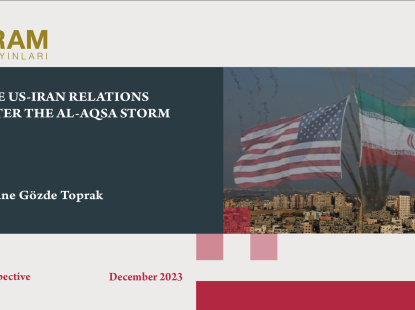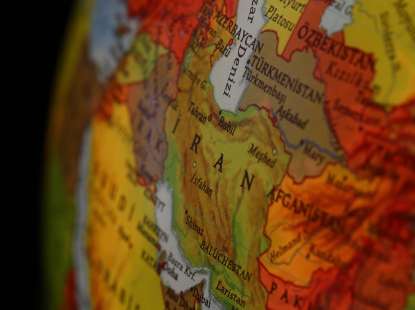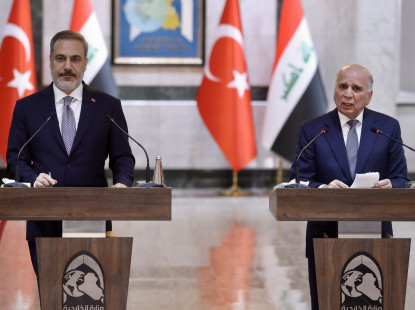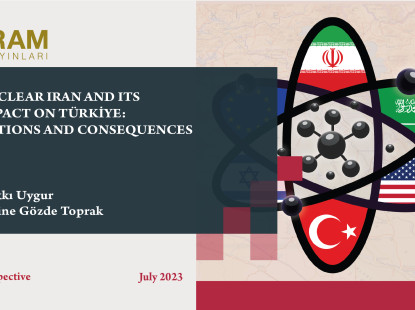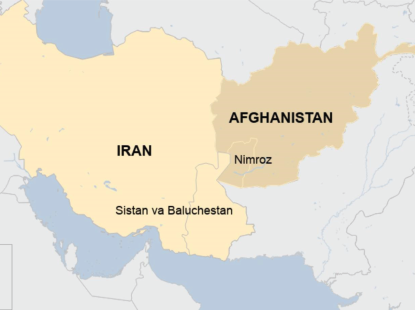Prisoner Swap Agreement Between Iran and the USA
The suspicious death of Mahsa Amini in custody has directed all the attention of the world public opinion to the protests that started in Iran on September 16. Nevertheless, in the meantime, there has been an important diplomatic initiative between Iran and the USA. According to the news published on October 1 in the Nournews, which is known to be close to the Supreme National Security Council of Iran, the United States and Iran have mutually agreed to release the prisoners with the mediation of a regional state (presumably Qatar).
The first step, in this context, has been taken by Iran. Siamak Namazi, a US citizen of Iranian origin, who has been imprisoned in Iran for nearly seven years, has been allowed out of Tehran’s Evin prison on a one-week furlough. Namazi's lawyer shared this information with the public on October 1. In addition, UN spokesperson Stephane Dujarric stated that Namazi’s father and former United Nations official Baquer Namazi, who was also convicted on charges of "collaboration with a hostile government," has been allowed to leave Iran for medical treatment. In return, the USA is expected to release seven people who have Iran-USA dual citizenship, two Iranian citizens who have a permanent residence permit in the USA, and four Iranians who have no legal status in the USA.
Moreover, Nournews announced that around $7 billion of Iran's money, which is blocked by the USA, will also be released. However, in the statement made on the Twitter account of the National Security Council of the USA regarding this news that originated in Iran, it is said that the news that Iran's frozen money was transferred in exchange for the release of Baquer and Siamak Namazi is categorically false.
The timing of these developments is quite remarkable. The nuclear negotiations held in Vienna under the coordination of the European Union (EU) for the revival of the Joint Comprehensive Plan of Action (JCPOA, Nuclear Deal) and the return of the USA to the Deal since April 2021 ended on August 8. The draft agreement presented by the EU, the coordinator of the negotiations, went back and forth between Iran and the USA, and a final result has not been reached yet. In addition to these developments, the disagreement between Iran and the International Atomic Energy Agency (IAEA) caused a deadlock in the nuclear negotiations. In fact, Iran's dispute with the IAEA is related to the Treaty on the Non-Proliferation of Nuclear Weapons (NPT) rather than the JCPOA. Nonetheless, in May 2022, the IAEA published a report recording that Iran did not comply with the requirements of the investigation into undeclared nuclear material found at the three sites and failed to provide "technically credible" explanations about these sites. In response, Iran claimed that the IAEA was biased and made the solution of the problem a condition for the JCPOA that caused a deadlock in the nuclear negotiations.
On the other hand, on September 2, White House Press Secretary Karine Jean-Pierre said there is no connection between the IAEA investigation and the JCPOA talks. Furthermore, Mohammad Eslami, the Vice President and the Head of the Atomic Energy Organization of Iran, announced on September 29 that Iran is ready to cooperate with the IAEA and that they will facilitate the monitoring and investigation activities of the Agency in the country. Thus, Iran softened its stance, which caused the deadlock in the nuclear negotiations in August 2022, and reflected its desire to restart the process.
When these developments are taken into consideration, it is possible to see the prisoner swap agreement between Iran and the USA as a reflection of the two countries' willingness to revive the JCPOA, even though it is not an issue in the context of the nuclear negotiations. Indeed, if they reach an agreement, the leaders of both countries will have to present the agreement to the public and have it accepted. Here, the congressional midterm elections that will take place on November 2022 in the USA are particularly important. While the JCPOA is a cause of opposition in itself, Joe Biden must not take any steps that will cause his party to lose power in the midterm elections, and he must achieve a gain that will reduce the voice of the opponents of the JCPOA. At this point, the prisoner swap agreement is a crucial step for the US public, which is sensitive to the captivity of US citizens in other countries, and it strengthened Biden's hand against the opponents of the JCPOA.





